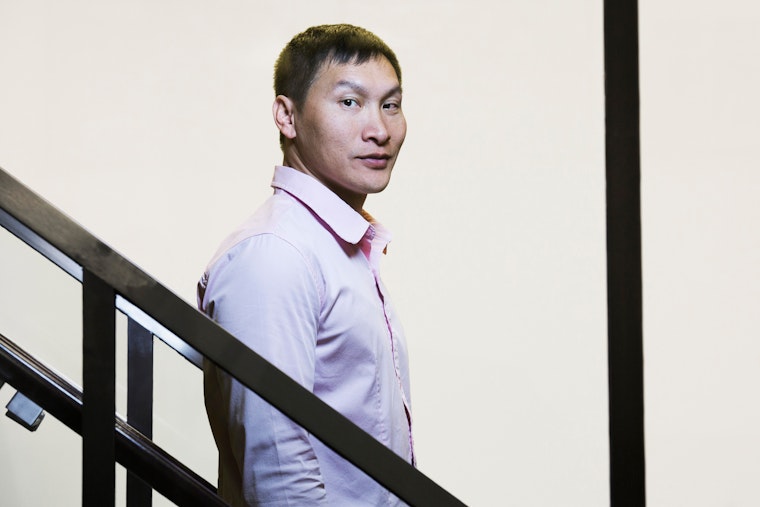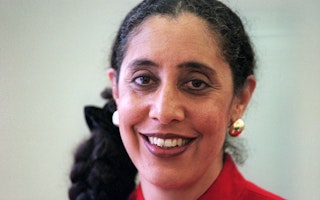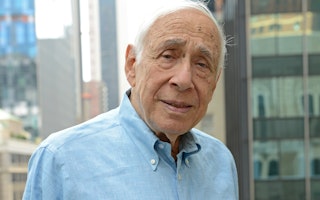How the “Model Minority” Myth Made Incarceration Harder for One Chinese Immigrant
By Donysha Smith

Though they represent a smaller share of incarcerated people than other populations, the number of Asian and Pacific Islanders (APIs) in prison has nearly doubled over the past decade. Soros Justice Fellow and formerly incarcerated Chinese immigrant Eddy Zheng talks about raising awareness around the impact of criminalization on API communities.
Tried as an adult at the age of 16, you spent 21 years in prison. What did you face as an incarcerated immigrant youth?
Nothing prepared me for the challenges I faced as an immigrant youth in the American criminal justice system. When I was arrested, I did not speak nor understand much English. I did not know my rights. A translator was provided during my interrogation, but I didn’t understand any of the legal jargon when it was translated.
My family didn’t have the resources to hire an attorney, so the court appointed one for me. Not comprehending the language or the consequences, I pled guilty and ended up with a life sentence with the possibility of parole. Once inside the system, as an API, I was segregated and categorized as an “other”—a fitting description for a population that is so often overlooked.
My court-appointed attorney did not inform me that I was very likely to be deported after I served my time because I was not a U.S. citizen. So, after I served 19 years in state prison, I was detained by the Department of Homeland Security. I spent two years in federal custody fighting my case and was ordered deported. Years later, I am still in jeopardy of being separated from my family and livelihood.
Tell us about the moment that moved you to advocacy.
There was no single moment. It was a culmination of moments and learning from the history of the civil rights movement, and the injustices done to the indigenous people, people of color, immigrants, and those brave souls who died doing the right thing in the name of love and justice.
We hear a lot about the school-to-prison pipeline. Is there an immigrant-to-prison pipeline?
As immigrants and refugees settle in the U.S., some are fortunate to find nurturing environments where they can become successful, while others are fast-tracked into the immigration-to-school-to-prison-and-deportation pipeline. With their displacement trauma still fresh, many API immigrants face isolation in poverty-stricken and violent environments. The three common challenges they encounter are language barriers, cultural differences, and generation gaps. As a result, many of them are criminalized and experience discrimination in the workplace and school.
Many immigrant children find schools to be hostile environments without proper resources. Those children are vulnerable to participating in activities that lead to the prison system. After prison time is served, anyone who is not a citizen of the U.S. can be detained and deported. These multiple layers of traumatic experiences are undeniably a crucial factor that creates and feeds into the reality of the immigration-to-school-to-prison-and-deportation pipeline.
How does the myth of the API “model minority” play out in the national debate over criminalization and mass incarceration?
When I was in prison, my parents never told anyone due to shame, so I had no relationship with any of my relatives. My grandparents died without ever knowing that I was in prison. My experience is common for many APIs due to a fear of “losing face.” It is that fear that keeps the API community from engaging in the national debate over criminalization and mass incarceration.
There are APIs who do not want to talk about anything “bad” that happened in their households or communities, who want to maintain the myth that all APIs are hardworking, successful, and without issues. This mindset prevents APIs from receiving the necessary support and resources we need to address issues in our community.
What do you hope to accomplish by the end of your project, and what do you see yourself doing in the next five to ten years?
By advocating, educating, and organizing, I will dispel the API model minority myth and expose the immigration-to-school-to-prison-and-deportation pipeline by creating a national network of API organizations that are working on ending criminalization, incarceration, and deportation. This network will also highlight the importance of restoring civil and human rights for all formerly and currently incarcerated people. In the next five to ten years, through movement building, we will support investment in education and efforts to end the cycle of trauma and incarceration for all people.
Until December 2018, Donysha Smith was a communications associate for U.S. Programs.

